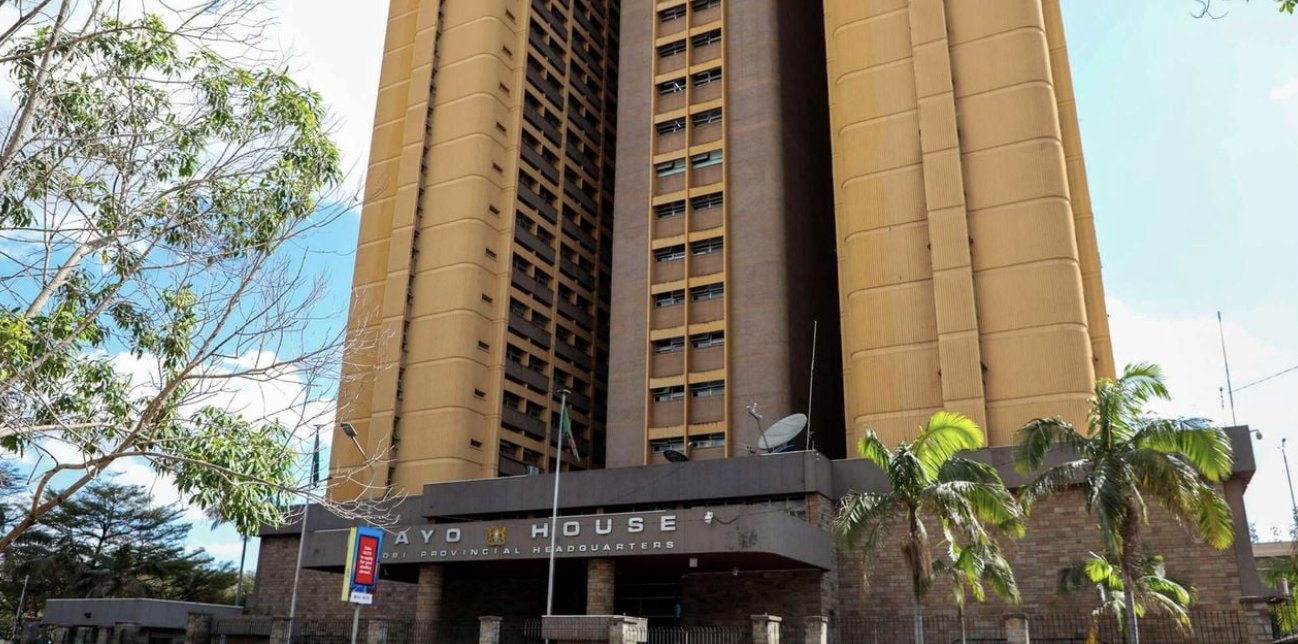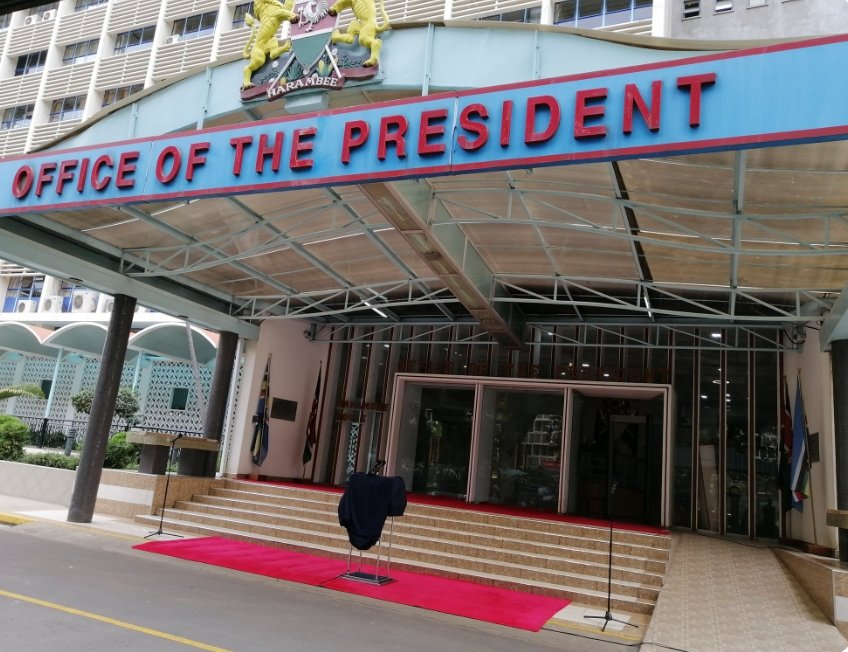Investigations
Missing Titles Cast Shadow Over Key Government Buildings

Kenya’s heart of power sits on shaky legal ground. The Office of the President (Harambee House), Nyayo House, and dozens of other critical government buildings were built on land without proper ownership documents.
This bombshell revelation came from Auditor General Nancy Gathungu’s latest report for the 2023/24 financial year.
The report shows that 16 ministries, departments, and agencies (MDAs) lack title deeds for parcels of land they occupy.
Without these missing titles, Kenya’s government buildings—symbols of authority and national pride—are legally exposed.
Encroachments, disputes, and possible land grabs loom large. It’s a ticking time bomb threatening public assets worth billions.

The Internal Security and National Administration department, which oversees these buildings, failed to provide any proof of land ownership. This glaring loophole exposes state assets to potential legal battles and even takeovers. [Photo/Courtesy]
The Dangerous Impact of Missing Titles
The Auditor General’s report paints a worrying picture of how widespread the problem is. Government departments and agencies responsible for key national functions are among the worst affected.
Take Harambee House and Nyayo House as examples. Both sit on prime Nairobi land, yet neither has valid title deeds. Harambee House, the nerve center of Kenya’s executive power, hosts the Office of the President, Ministry of Interior and National Administration, Sheria House, and other critical offices.
Nyayo House, meanwhile, is home to the Immigration Department and serves as the headquarters of Nairobi Region.
The Internal Security and National Administration department, which oversees these buildings, failed to provide any proof of land ownership. This glaring loophole exposes state assets to potential legal battles and even takeovers.
The National Police Service (NPS) and the Independent Electoral and Boundaries Commission (IEBC) also have missing titles for multiple properties across the country. These two institutions are vital to Kenya’s security and democracy, yet their properties remain legally insecure.
Even the State Department for Housing and Urban Development, tasked with delivering affordable housing projects worth Sh49.45 billion, cannot provide ownership documents.
By December 2024, the government had already collected Sh88.7 billion from the Housing Levy to fund the projects. Yet, Sh46 billion of that money was invested in Treasury bills instead of being used to build homes. The lack of land titles puts the entire affordable housing program at risk of collapse.
Key Ministries at Risk of Losing Land
The Auditor General’s report also flagged serious risks within the Ministry of Health and Ministry of Foreign Affairs. The Ministry of Health could not provide a title deed for its own headquarters, raising red flags about the safety of the property.
The Ministry of Foreign Affairs, which manages Kenya’s diplomatic properties abroad, lacked ownership documents for the Kenya Mission in Tel Aviv, Israel.
The situation is just as bad within the State Law Office and Department of Justice. Officials there failed to produce both a sale agreement and title deed for a government parcel in Malindi. Such gaps raise fears of corruption, fraud, and illegal transfers.
The State Department for Correctional Services also lacks proper documentation for many of its correctional facilities. The report highlights that about 10 parcels of land across Thika, Narok, Nakuru, Malindi, and Kisumu have already been encroached upon by individuals, churches, and even other government bodies.
In November 2024, a verification mission confirmed that additional land had been grabbed, further complicating ownership issues.
Why Missing Titles Matter Now More Than Ever
The lack of title deeds isn’t just a paperwork issue. It strikes at the core of public trust and asset protection. Without clear land ownership, Kenya’s government cannot safeguard its buildings against encroachers or settle disputes in court. The absence of titles also hinders development projects and delays critical services.
The Auditor General has urged the Ministry of Lands and Physical Planning, the National Land Commission, and the National Treasury to step in and resolve these ownership crises. Until then, billions worth of government property hang in legal limbo.
The risk is stark. Encroachment and potential land grabs could cripple state functions, paralyze vital services, and cost taxpayers even more money to reclaim what is rightfully public land. The issue of missing titles isn’t just a bureaucratic lapse—it’s a full-blown governance failure.
Kenya Insights allows guest blogging, if you want to be published on Kenya’s most authoritative and accurate blog, have an expose, news TIPS, story angles, human interest stories, drop us an email on [email protected] or via Telegram
-

 Grapevine2 weeks ago
Grapevine2 weeks agoRussian Man’s Secret Sex Recordings Ignite Fury as Questions Mount Over Consent and Easy Pick-Ups in Nairobi
-

 News1 week ago
News1 week agoTHE FIRM IN THE DOCK: How Kaplan and Stratton Became the Most Scrutinised Law Firm in Kenya
-

 Investigations1 week ago
Investigations1 week agoMulti-Million Dollar Fraud: Three Kenyans Face US Extradition in Massive Cybercrime Conspiracy
-

 Economy1 week ago
Economy1 week agoIran Demands Arrest, Prosecution Of Kenya’s Cup of Joe Director Director Over Sh2.6 Billion Tea Fraud
-

 Business1 week ago
Business1 week agoA Farm in Kenya’s Rift Valley Ignites a National Reckoning With Israeli Investment
-

 Africa2 weeks ago
Africa2 weeks agoFBI Investigates Congresswoman Ilhan Omar’s Husband’s Sh3.8 Billion Businesses in Kenya, Somalia and Dubai
-

 Grapevine5 days ago
Grapevine5 days agoA UN Director Based in Nairobi Was Deep in an Intimate Friendship With Epstein — He Even Sent Her a Sex Toy
-

 News2 weeks ago
News2 weeks agoTragedy As City Hall Hands Corrupt Ghanaian Firm Multimillion Garbage Collection Tender
















